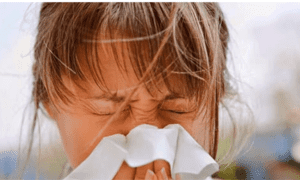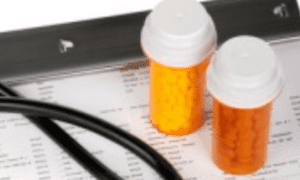Common Medical Myths That Many People Still Hold Even When Evidence Disproves Them

It is wise to depend on evidence-based information concerning one’s health. In this article, we will debunk several persistent medical myths. We need to recognize the fallacy of these long-held ideas due to their excessive repetition.
Allow me to elucidate them for you. Myths and misconceptions abound in the field of medicine. Differentiating truth from fiction is more crucial than ever in this age of fake news.
Medical Myths That Many People Still Hold
“Old wives’ tales” are “spurious or superstitious claims.” This does not mean the “old wives” knowingly spread false information. The alternative was that they thought you could catch a cold by doing specific activities, like running outside when it was chilly.
The “old wives” had this belief in their hearts. Nevertheless, further investigation disproved it. Many additional myths are still believed by the general public and even by medical professionals.
Turkey contains a lot of L-tryptophan, which can make you feel drowsy. If you were to poll ten people, the majority would say yes. However, this review claims that this is different.
1. Get eight glasses of water daily


Forget about tallying cups. Studies show that those down a large glass of water satisfy their thirst and maintain a healthy hydration level. Soup, fruits, and vegetables are good water sources, as are beverages like tea, coffee, and juice. Those who experience dark yellow urine, incontinence, excessive physical activity, or who reside in hot climates may find it necessary to increase their water intake.
2. Eggs are cardiovascular dangerous
Lover of omelettes, take heart. Enjoying one or two eggs daily is perfectly safe for healthy individuals. While egg yolks contain cholesterol, managing cholesterol levels is primarily about following a diet low in saturated and trans fats. Eggs have enough quantity of omega-3 fatty acids, which can reduce the likelihood of cardiovascular disease. So go ahead and savour those eggs with confidence!
3. Cancer of the breast caused by antiperspirant
Take it easy! According to some scientists, the chemicals in deodorants and antiperspirants may be absorbed through the underarms. Supposedly, they make their way into breast tissue and increase the likelihood of cancer. The National Cancer Institute, however, has concluded that neither product is associated with an increased risk of breast cancer.
4. When You’re cold, you catch a cold.


Contrary to what your grandma may have told you, cold weather doesn’t make you sick. Research has shown that healthy men’s immune systems become more active in their fight against viruses after spending a few hours in slightly warmer temperatures than freezing. Actually, due to the ease of transmission of germs indoors, you are more likely to fall ill.
5. A multivitamin should be taken every day
The idea that a multivitamin can compensate for nutrients not getting enough from food alone is not new. Researchers disagree on that issue. Nonetheless, follow your doctor’s orders and take the vitamin. Pregnant women should take folate to further reduce the likelihood of birth abnormalities. A nutrient-dense diet comprises nuts, fruits, vegetables, whole grains, and healthy oils.
6. Drop pounds by consuming breakfast
Breakfast can aid in weight loss for some people. In addition to warding off hunger, it may keep you from bingeing later. There is no need to give up breakfast altogether if you’re trying to lose weight.
Researchers from Cornell University discovered that people who skipped breakfast consumed 400 fewer calories per day and didn’t stuff themselves at lunch or dinner. Some healthy people may find that skipping breakfast helps them lose weight.
7. Signs of an infection: green mucus
Your tissue sample isn’t a replacement for a laboratory evaluation. Research indicates that specific bacterial illnesses are slightly more likely to produce green or yellow mucus. However, this does not necessarily indicate that you have an infection or require antibiotics. Mucus can be apparent from a sinus infection or green from a typical cold.
8. Consuming sugar raises angry moods in children


Although sugar is terrible for kids, studies have shown that it won’t make them hyperactive, disrupt their concentration, or lead them to act out. However, many parents assume their children would act out after consuming sugary foods because they think there is a connection. So, should it occur, they will be highly attuned to perceive it.
9. You could get sick from using a toilet seat
If you’re unable to cover the seat, that’s OK. While most people clean their toilet seats, E. coli and other bacteria are more likely to be found on bathroom doors, handles, and floors. The flu, cold, and norovirus (often called “stomach flu”). Put a paper towel over your hand before touching any doorknobs or handles, and then wash your hands or use hand sanitizer afterwards.
10. Joint fractures lead to arthritis
The sound can do minor damage other than annoying those around you. A common misconception is that it is caused by rubbing bones or joints. It happens when a gas bubble forms in the space between the bones and “pops.
” If it brings you joy, then continue. According to research, it does not affect arthritis and does not induce it. A trip to the doctor is needed if you experience chronic or excruciating discomfort after that.
11. Exercise can lead to weight loss
Running on the treadmill for hours will not help you lose the weight you acquired this year.
An expert in the field, Dr Rekha B. Kumar (NewYork-Presbyterian, division of endocrinology/comprehensive weight control), says exercise benefits your heart, muscles, bones, mental health, and longevity. However, studies examining the impact of exercise on weight loss found no statistically significant benefit from exercising without reducing calorie intake.
12. A woman cannot conceive while she Is menstruating


A woman’s menstrual cycle is 28 days with ovulation occurring on day 14. However, conception can still happen outside this timeframe. Dr Alexis Melnick of New York states that there is a common belief that a woman cannot get pregnant if she has sex while she is still bleeding during days 1-7 of her cycle.
Having said that, there are exceptions to this rule. Although a woman may have a period once a month, the duration of her cycle might vary. For example, one month might be 27 days, the next 26 days, and so on.
It’s also possible for her ovulation to occur before day 14. Additionally, sperm have a three- to five-day survival window in a female reproductive system. Therefore, conception can still take place if sperm are available, even if ovulation occurs after bleeding ends.
The length of a woman’s menstrual cycle tends to decrease with age, and according to Dr. Melnick, ovulation can occur as early as the first few days of a cycle, even while bleeding is still ongoing.
Finally, it’s not uncommon for women to experience mid-cycle bleeding, which might be mistaken for a period, mainly if it occurs around ovulation. Every day of a woman’s menstrual cycle is an opportunity to use some form of birth control if she wants to avoid becoming pregnant.
13. Men have a higher risk of heart disease
In America, heart disease ranks first among both sexes when it comes to mortality. As an assistant professor, Dr Nisha Jhalani, explains, the main difference is that women experience symptoms later in life compared to men.
Until menopause sets in, which often occurs in a woman’s early 50s, estrogen protects against cardiovascular disease. However, following menopause, estrogen levels decline. According to Dr. Jhalani, this is why postmenopausal women should schedule frequent checkups to address any concerns they may have about their cardiovascular risk.
A more significant number of women die from heart disease every year than from all cancers put together, according to her. Women experience a higher mortality rate from heart attacks compared to men.
Additionally, they are more prone to silent heart attacks or unusual symptoms associated with heart attacks. As a result, they are less likely to receive aggressive treatment through surgeries and medications. They are more likely to be misdiagnosed when they visit the emergency room.
14. Do not refill prescriptions that have expired.


Surprisingly, you can still use that ibuprofen bottle on the shelf for six months to alleviate a headache.
Drug manufacturers must imprint expiration dates on medication bottles by law since 1979. explains Dr Tung why this is the case. This date signifies the point in time when the pharmaceutical company will promise that the medicine will be fully effective. Nonetheless, the drug’s real storage life can be substantially greater.
“According to a considerable study carried out by the FDA on behalf of the Department of Defense, numerous medications have a shelf life of up to five years, with many even lasting up to fifteen years,” remarks Dr. Tung.
Some drugs, like insulin or antibiotics, are notable exceptions to this rule. If you’re taking medication and even a slight change in dosage can have serious consequences, it’s best to stick to the expiration date. As for the others, it’s OK to take over-the-counter medications that have expired for a few years.
15. Can you get sick by trying to suppress a sneeze?
Of course! This one is real, believe it or not. The sinuses and lungs get overworked when you try to suppress a sneeze on purpose. Among the many possible outcomes are inflamed throats, punctured eardrums, and burst blood vessels.
The medical professionals here have dealt with many patients who have learned the hard way to stuff their noses. Though unlikely, adverse effects are not ruled out. If you have a history of respiratory issues, you must exhale fully the next time you feel the urge to sneeze.
16. Does our brain capacity only get used 10% of the time?
No. We may not be able to pinpoint precisely what percentage of our brainpower we employ, but it’s more than 10%. Most of our brain is engaged in basic tasks, even though MRI and CT scans show we underuse specific regions. Because different persons have different area capabilities, the precise percentage varies from person to person.
17. Will more than one hair regrow if you pluck off a single grey hair?
No. It is physically impossible for two hairs to sprout from the same extracted follicle. Think of this as a medical myth dispelled!
Will we see thicker, darker hair once we cut it?
Most likely. Shaving can promote hair growth, but the regrowth pattern is mainly determined by heredity. Hair usually grows back faster than before, but it isn’t coarser or darker.
18. Does reading when the light is dim hurt your eyes?
Probably not. Although everyone has a varied light tolerance, eye strain is still a real problem. Read in the dark if you can comfortably read in low light without experiencing eye strain or pain! I would only recommend it if reading in dim light is manageable. Once again, it’s all about personal preference.
19. Is it true that size decreases with age?
Of course! As you age, you may notice a diminution of one or two inches in height due to the natural narrowing of the space between your spine’s vertebrae.
20. Does knuckle cracking cause arthritis?


No. Despite how widespread it is, this prevalent health myth is entirely unfounded. If you really must crack, do it, but be aware that doing so may gradually weaken your grip strength.
21. After suffering a concussion, is it necessary to remain awake?
No. The only way to check a concussed person’s brain function used to be to wake them up every hour and see how responsive they were. CT, MRI, and PET scans can now determine a patient’s level of consciousness and orientation. As is now well known, the brain heals faster after a good night’s sleep.
22. Is it unhealthy to swim immediately after eating?
No. Unlike what your mom might have told you about this widespread health misunderstanding, you don’t have to wait an hour before leaping into the pool.
The first hypothesis put out was that you would drown because your body expended so much energy digesting food that there wouldn’t be enough blood flow to reach your limbs. Yeah, that’s not true. Swimming immediately after eating poses no risk other than an unsettled stomach.
23. Am I more likely to get a cold if I take supplements?
Most likely. If taken moderately and adequately, remember that vitamin C can support your immune system in battling a cold for a shorter duration. Having an excess of an excellent thing in this situation is feasible. If you’re worried about overdosing on vitamins to treat a cold, it’s best to consult a doctor first.
24. Are sweets and other sugary meals a significant acne trigger?
Probably Not. While sugar won’t clear up your acne, it won’t worsen it. Sugar and candy won’t damage your skin unless you’re eating them by the pound. Your hormones and genes determine, to a large extent, how much acne you experience.
25. What are the risks of rousing a person who is sleepwalking?


Probably Not. Waking a sleepwalker poses little long-term risk. But rather than violently rousing the person, leading them back to bed gently is preferable. By doing so, you can avoid hitting the sleepwalker in the face and prevent them from becoming disoriented.
26. Can a jellyfish sting be treated with urine?
Most likely. To remove the sting, you should use an acid or base solution. You decide what that solution is. There is no definitive proof or disproof regarding urine. We recommend cleaning with soap and water to prevent the accusation of public obscenity.
Living with Chronic Pain: Strategies for Coping and Finding Relief
27. Would it be dangerous to use a cell phone on hospital property?
No. When cell phones emerged, several individuals feared using them at healthcare facilities. Now that they’ve been around for a while, we know they don’t affect the surrounding medical technology.
28. Does eating an apple every day prevent health problems?
Apples will likely not keep you out of the doctor’s office if that’s all you’re referring to. A healthy diet can minimize the chance of developing chronic diseases and disorders. Eating unprocessed, fibre-rich foods like apples is best for optimal digestive and general health.
Despite our progress in dispelling medical myths and old wives’ tales, medical experts must address many popular health beliefs. Remember that if something seems too incredible to be accurate, it most likely is. Use common sense, maintain a healthy dose of scepticism, and cite your sources.
29. Getting a flu shot can make you sick to your stomach.
Yes, minor side effects, such as redness at the injection site and a headache or low-grade fever, may occur for one day after the shot are possible. However, be assured that these are not symptoms of the flu.
30. The most recent meal you had caused food poisoning.


A fact is that symptoms can not appear from tainted food for up to 24 hours. Identifying the specific meal that made you sick during that time can be challenging because you would have consumed various foods.
Narcissisim Personality Disorder
31. The belief that a chilly shower and some coffee will help you get sober is a myth.
Only time can sober you up. Although you are conscious and alert, you are nonetheless impaired.
Generic versions of brand-name medications must meet the same quality, strength, purity, and stability standards to be approved by the FDA.
32. Brand-name medications have more efficacy than generic ones.
FDA regulations stipulate that generic versions of brand-name medications must be identical to their counterparts in terms of potency, purity, and stability. The active components and the mechanism of action of generic medications are identical.
Your time here is much appreciated! Become a member of blogkingworld.com if you enjoyed this and found it useful. To remain, sign up for my newsletter at no cost. Content and resources to help you get more done in less time. This might be of interest to you: Maximizing Efficiency through the Use of Prioritization in Time Management.




